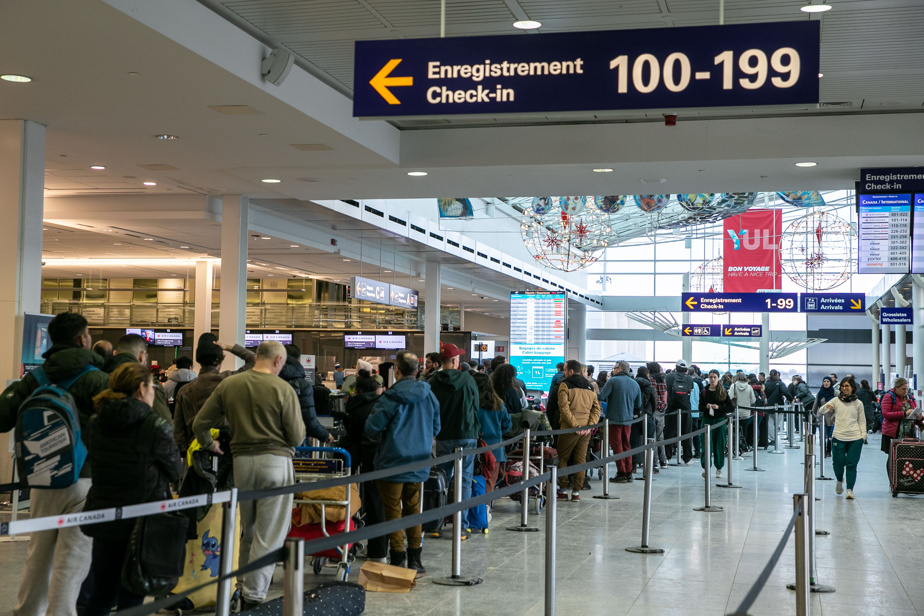(Ottawa) Transport Minister Omar Alghabra intends to tighten the screws on air carriers by making automatic the payment of financial compensation to passengers after flight cancellations, long delays or denied boarding.
In a series of changes announced Monday, Minister Alghabra confirms that Ottawa will reverse the burden of proof on compensation. Result: it will be up to the airlines to demonstrate why it should not be granted to travelers.
There will be some exceptions that fall under “very limited” circumstances – such as a major snowstorm that disrupts air travel. These exceptions will be established after public consultation. But carriers will still have the obligation to distribute meals and water to travelers if they have to cancel or delay a flight because of the weather.
With respect to lost or delayed baggage, the federal government intends to establish traveler reimbursement requirements.
“The proposed changes would significantly improve our air passenger rights regime to ensure travelers get the services and treatment they pay for and deserve,” Minister Alghabra said at a press conference on Monday.
“Compensation would therefore be the default option. In addition to being entitled to a refund, most air passengers will be entitled to financial compensation,” he said.
The minister also intends to increase the fines imposed on airlines in the event of violation of the regulations. They would go from $25,000 to $250,000.
Currently, regulations state that an airline must compensate passengers when a flight is delayed or canceled for a reason attributable to the airline.
In the event of a delay due to weather conditions, airlines are required to inform passengers and offer them a new reservation.
But if they cannot be re-routed within 48 hours, the airline is required to offer them a refund.
These changes to the Canada Transportation Act are included in Bill C-47 to implement the latest budget tabled by Finance Minister Chrystia Freeland. The new measures are expected to come into effect on September 30.
In a report tabled last week, the House of Commons transport committee proposed similar changes to strengthen the air passenger rights regime adopted four years ago by the Trudeau government.
The minister unveiled these changes after rather chaotic bouts of travel at Canadian airports, including during the summer vacation and holiday season last year. These turbulent times at airports were caused by growing passenger demand after the pandemic, labor shortages and bad weather over Christmas.
The discontent of travelers was such that the Canadian Transportation Agency (CTA) was inundated with complaints. Last week, the organization was still evaluating some 45,000 complaints, more than triple from a year ago.
In this regard, Minister Alghabra recalled that he granted an additional budget of $75.9 million over three years to allow the CTA to increase the pace and reduce the backlog of complaints. He also announced other changes on Monday that should allow for faster processing of complaints.
Among other things, it intends to simplify the process for resolving complaints by eliminating the process of arbitration by members appointed by the Governor in Council. The exercise will therefore be conducted primarily by CTO staff.
The Minister also imposes a greater burden of proof on air carriers when it is presumed that compensation is payable to a complainant and requires air carriers to implement an internal process for handling claims relating to air travel. It also expands the power of the CTA to set fees to cover its costs, among other things.
The NDP reacted quickly to these measures proposed by the Minister of Transport. Transport critic Taylor Bachrach argued that the changes fall short of the standards set by the European Union. “The Minister has promised to give Canadians the strongest protections in the world for air passengers, but this latest attempt is not going to solve the big problems. So far, the Liberals seem to be doubling down on their expensive, complex and bureaucratic approach, which is unable to meet the expectations of Canadian travellers. »

